-
EXECUTIVE SUMMARY
-
Market Overview
-
Key Findings
-
Market Segmentation
-
Competitive Landscape
-
Challenges and Opportunities
-
Future Outlook
-
MARKET INTRODUCTION
-
Definition
-
Scope of the study
- Research Objective
- Assumption
- Limitations
-
RESEARCH METHODOLOGY
-
Overview
-
Data Mining
-
Secondary Research
-
Primary Research
- Primary Interviews and Information Gathering Process
- Breakdown of Primary Respondents
-
Forecasting Model
-
Market Size Estimation
- Bottom-Up Approach
- Top-Down Approach
-
Data Triangulation
-
Validation
-
MARKET DYNAMICS
-
Overview
-
Drivers
-
Restraints
-
Opportunities
-
MARKET FACTOR ANALYSIS
-
Value chain Analysis
-
Porter's Five Forces Analysis
- Bargaining Power of Suppliers
- Bargaining Power of Buyers
- Threat of New Entrants
- Threat of Substitutes
- Intensity of Rivalry
-
COVID-19 Impact Analysis
- Market Impact Analysis
- Regional Impact
- Opportunity and Threat Analysis
-
33D Printing Automotive Market, BY APPLICATION (USD BILLION)
-
Prototyping
-
Tooling
-
Production Parts
-
Custom Components
-
33D Printing Automotive Market, BY MATERIAL TYPE (USD BILLION)
-
Plastic
-
Metal
-
Ceramics
-
Composites
-
33D Printing Automotive Market, BY TECHNOLOGY (USD BILLION)
-
Fused Deposition Modeling
-
Selective Laser Sintering
-
Stereolithography
-
Digital Light Processing
-
33D Printing Automotive Market, BY END USE (USD BILLION)
-
Passenger Vehicles
-
Commercial Vehicles
-
Motorcycles
-
33D Printing Automotive Market, BY REGIONAL (USD BILLION)
-
North America
- US
- Canada
-
Europe
- Germany
- UK
- France
- Russia
- Italy
- Spain
- Rest of Europe
-
APAC
- China
- India
- Japan
- South Korea
- Malaysia
- Thailand
- Indonesia
- Rest of APAC
-
South America
- Brazil
- Mexico
- Argentina
- Rest of South America
-
MEA
- GCC Countries
- South Africa
- Rest of MEA
-
COMPETITIVE LANDSCAPE
-
Overview
-
Competitive Analysis
-
Market share Analysis
-
Major Growth Strategy in the 3D Printing in Automotive Market
-
Competitive Benchmarking
-
Leading Players in Terms of Number of Developments in the 3D Printing in Automotive Market
-
Key developments and growth strategies
- New Product Launch/Service Deployment
- Merger & Acquisitions
- Joint Ventures
-
Major Players Financial Matrix
- Sales and Operating Income
- Major Players R&D Expenditure. 2023
-
COMPANY PROFILES
-
HP
- Financial Overview
- Products Offered
- Key Developments
- SWOT Analysis
- Key Strategies
-
Renishaw
- Financial Overview
- Products Offered
- Key Developments
- SWOT Analysis
- Key Strategies
-
GE Additive
- Financial Overview
- Products Offered
- Key Developments
- SWOT Analysis
- Key Strategies
-
Maples
- Financial Overview
- Products Offered
- Key Developments
- SWOT Analysis
- Key Strategies
-
3D Systems
- Financial Overview
- Products Offered
- Key Developments
- SWOT Analysis
- Key Strategies
-
EOS
- Financial Overview
- Products Offered
- Key Developments
- SWOT Analysis
- Key Strategies
-
Xometry
- Financial Overview
- Products Offered
- Key Developments
- SWOT Analysis
- Key Strategies
-
Formlabs
- Financial Overview
- Products Offered
- Key Developments
- SWOT Analysis
- Key Strategies
-
Carbon
- Financial Overview
- Products Offered
- Key Developments
- SWOT Analysis
- Key Strategies
-
Stratasys
- Financial Overview
- Products Offered
- Key Developments
- SWOT Analysis
- Key Strategies
-
UNK
- Financial Overview
- Products Offered
- Key Developments
- SWOT Analysis
- Key Strategies
-
Materialise
- Financial Overview
- Products Offered
- Key Developments
- SWOT Analysis
- Key Strategies
-
Sculpteo
- Financial Overview
- Products Offered
- Key Developments
- SWOT Analysis
- Key Strategies
-
Siemens
- Financial Overview
- Products Offered
- Key Developments
- SWOT Analysis
- Key Strategies
-
APPENDIX
-
References
-
Related Reports LIST OF TABLES
-
TABLE
-
LIST OF ASSUMPTIONS
-
TABLE
-
NORTH AMERICA 3D PRINTING IN AUTOMOTIVE MARKET SIZE ESTIMATES & 3D Printing Automotive Market, BY APPLICATION, 2019-2035 (USD BILLIONS)
-
TABLE
-
NORTH AMERICA 3D PRINTING IN AUTOMOTIVE MARKET SIZE ESTIMATES & 3D Printing Automotive Market, BY MATERIAL TYPE, 2019-2035 (USD BILLIONS)
-
TABLE
-
NORTH AMERICA 3D PRINTING IN AUTOMOTIVE MARKET SIZE ESTIMATES & 3D Printing Automotive Market, BY TECHNOLOGY, 2019-2035 (USD BILLIONS)
-
TABLE
-
NORTH AMERICA 3D PRINTING IN AUTOMOTIVE MARKET SIZE ESTIMATES & 3D Printing Automotive Market, BY END USE, 2019-2035 (USD BILLIONS)
-
TABLE
-
NORTH AMERICA 3D PRINTING IN AUTOMOTIVE MARKET SIZE ESTIMATES & 3D Printing Automotive Market, BY REGIONAL, 2019-2035 (USD BILLIONS)
-
TABLE
-
US 3D PRINTING IN AUTOMOTIVE MARKET SIZE ESTIMATES & 3D Printing Automotive Market, BY APPLICATION, 2019-2035 (USD BILLIONS)
-
TABLE
-
US 3D PRINTING IN AUTOMOTIVE MARKET SIZE ESTIMATES & 3D Printing Automotive Market, BY MATERIAL TYPE, 2019-2035 (USD BILLIONS)
-
TABLE
-
US 3D PRINTING IN AUTOMOTIVE MARKET SIZE ESTIMATES & 3D Printing Automotive Market, BY TECHNOLOGY, 2019-2035 (USD BILLIONS)
-
TABLE
-
US 3D PRINTING IN AUTOMOTIVE MARKET SIZE ESTIMATES & 3D Printing Automotive Market, BY END USE, 2019-2035 (USD BILLIONS)
-
TABLE
-
US 3D PRINTING IN AUTOMOTIVE MARKET SIZE ESTIMATES & 3D Printing Automotive Market, BY REGIONAL, 2019-2035 (USD BILLIONS)
-
TABLE
-
CANADA 3D PRINTING IN AUTOMOTIVE MARKET SIZE ESTIMATES & 3D Printing Automotive Market, BY APPLICATION, 2019-2035 (USD BILLIONS)
-
TABLE
-
CANADA 3D PRINTING IN AUTOMOTIVE MARKET SIZE ESTIMATES & 3D Printing Automotive Market, BY MATERIAL TYPE, 2019-2035 (USD BILLIONS)
-
TABLE
-
CANADA 3D PRINTING IN AUTOMOTIVE MARKET SIZE ESTIMATES & 3D Printing Automotive Market, BY TECHNOLOGY, 2019-2035 (USD BILLIONS)
-
TABLE
-
CANADA 3D PRINTING IN AUTOMOTIVE MARKET SIZE ESTIMATES & 3D Printing Automotive Market, BY END USE, 2019-2035 (USD BILLIONS)
-
TABLE
-
CANADA 3D PRINTING IN AUTOMOTIVE MARKET SIZE ESTIMATES & 3D Printing Automotive Market, BY REGIONAL, 2019-2035 (USD BILLIONS)
-
TABLE
-
EUROPE 3D PRINTING IN AUTOMOTIVE MARKET SIZE ESTIMATES & 3D Printing Automotive Market, BY APPLICATION, 2019-2035 (USD BILLIONS)
-
TABLE
-
EUROPE 3D PRINTING IN AUTOMOTIVE MARKET SIZE ESTIMATES & 3D Printing Automotive Market, BY MATERIAL TYPE, 2019-2035 (USD BILLIONS)
-
TABLE
-
EUROPE 3D PRINTING IN AUTOMOTIVE MARKET SIZE ESTIMATES & 3D Printing Automotive Market, BY TECHNOLOGY, 2019-2035 (USD BILLIONS)
-
TABLE
-
EUROPE 3D PRINTING IN AUTOMOTIVE MARKET SIZE ESTIMATES & 3D Printing Automotive Market, BY END USE, 2019-2035 (USD BILLIONS)
-
TABLE
-
EUROPE 3D PRINTING IN AUTOMOTIVE MARKET SIZE ESTIMATES & 3D Printing Automotive Market, BY REGIONAL, 2019-2035 (USD BILLIONS)
-
TABLE
-
GERMANY 3D PRINTING IN AUTOMOTIVE MARKET SIZE ESTIMATES & 3D Printing Automotive Market, BY APPLICATION, 2019-2035 (USD BILLIONS)
-
TABLE
-
GERMANY 3D PRINTING IN AUTOMOTIVE MARKET SIZE ESTIMATES & 3D Printing Automotive Market, BY MATERIAL TYPE, 2019-2035 (USD BILLIONS)
-
TABLE
-
GERMANY 3D PRINTING IN AUTOMOTIVE MARKET SIZE ESTIMATES & 3D Printing Automotive Market, BY TECHNOLOGY, 2019-2035 (USD BILLIONS)
-
TABLE
-
GERMANY 3D PRINTING IN AUTOMOTIVE MARKET SIZE ESTIMATES & 3D Printing Automotive Market, BY END USE, 2019-2035 (USD BILLIONS)
-
TABLE
-
GERMANY 3D PRINTING IN AUTOMOTIVE MARKET SIZE ESTIMATES & 3D Printing Automotive Market, BY REGIONAL, 2019-2035 (USD BILLIONS)
-
TABLE
-
UK 3D PRINTING IN AUTOMOTIVE MARKET SIZE ESTIMATES & 3D Printing Automotive Market, BY APPLICATION, 2019-2035 (USD BILLIONS)
-
TABLE
-
UK 3D PRINTING IN AUTOMOTIVE MARKET SIZE ESTIMATES & 3D Printing Automotive Market, BY MATERIAL TYPE, 2019-2035 (USD BILLIONS)
-
TABLE
-
UK 3D PRINTING IN AUTOMOTIVE MARKET SIZE ESTIMATES & 3D Printing Automotive Market, BY TECHNOLOGY, 2019-2035 (USD BILLIONS)
-
TABLE
-
UK 3D PRINTING IN AUTOMOTIVE MARKET SIZE ESTIMATES & 3D Printing Automotive Market, BY END USE, 2019-2035 (USD BILLIONS)
-
TABLE
-
UK 3D PRINTING IN AUTOMOTIVE MARKET SIZE ESTIMATES & 3D Printing Automotive Market, BY REGIONAL, 2019-2035 (USD BILLIONS)
-
TABLE
-
FRANCE 3D PRINTING IN AUTOMOTIVE MARKET SIZE ESTIMATES & 3D Printing Automotive Market, BY APPLICATION, 2019-2035 (USD BILLIONS)
-
TABLE
-
FRANCE 3D PRINTING IN AUTOMOTIVE MARKET SIZE ESTIMATES & 3D Printing Automotive Market, BY MATERIAL TYPE, 2019-2035 (USD BILLIONS)
-
TABLE
-
FRANCE 3D PRINTING IN AUTOMOTIVE MARKET SIZE ESTIMATES & 3D Printing Automotive Market, BY TECHNOLOGY, 2019-2035 (USD BILLIONS)
-
TABLE
-
FRANCE 3D PRINTING IN AUTOMOTIVE MARKET SIZE ESTIMATES & 3D Printing Automotive Market, BY END USE, 2019-2035 (USD BILLIONS)
-
TABLE
-
FRANCE 3D PRINTING IN AUTOMOTIVE MARKET SIZE ESTIMATES & 3D Printing Automotive Market, BY REGIONAL, 2019-2035 (USD BILLIONS)
-
TABLE
-
RUSSIA 3D PRINTING IN AUTOMOTIVE MARKET SIZE ESTIMATES & 3D Printing Automotive Market, BY APPLICATION, 2019-2035 (USD BILLIONS)
-
TABLE
-
RUSSIA 3D PRINTING IN AUTOMOTIVE MARKET SIZE ESTIMATES & 3D Printing Automotive Market, BY MATERIAL TYPE, 2019-2035 (USD BILLIONS)
-
TABLE
-
RUSSIA 3D PRINTING IN AUTOMOTIVE MARKET SIZE ESTIMATES & 3D Printing Automotive Market, BY TECHNOLOGY, 2019-2035 (USD BILLIONS)
-
TABLE
-
RUSSIA 3D PRINTING IN AUTOMOTIVE MARKET SIZE ESTIMATES & 3D Printing Automotive Market, BY END USE, 2019-2035 (USD BILLIONS)
-
TABLE
-
RUSSIA 3D PRINTING IN AUTOMOTIVE MARKET SIZE ESTIMATES & 3D Printing Automotive Market, BY REGIONAL, 2019-2035 (USD BILLIONS)
-
TABLE
-
ITALY 3D PRINTING IN AUTOMOTIVE MARKET SIZE ESTIMATES & 3D Printing Automotive Market, BY APPLICATION, 2019-2035 (USD BILLIONS)
-
TABLE
-
ITALY 3D PRINTING IN AUTOMOTIVE MARKET SIZE ESTIMATES & 3D Printing Automotive Market, BY MATERIAL TYPE, 2019-2035 (USD BILLIONS)
-
TABLE
-
ITALY 3D PRINTING IN AUTOMOTIVE MARKET SIZE ESTIMATES & 3D Printing Automotive Market, BY TECHNOLOGY, 2019-2035 (USD BILLIONS)
-
TABLE
-
ITALY 3D PRINTING IN AUTOMOTIVE MARKET SIZE ESTIMATES & 3D Printing Automotive Market, BY END USE, 2019-2035 (USD BILLIONS)
-
TABLE
-
ITALY 3D PRINTING IN AUTOMOTIVE MARKET SIZE ESTIMATES & 3D Printing Automotive Market, BY REGIONAL, 2019-2035 (USD BILLIONS)
-
TABLE
-
SPAIN 3D PRINTING IN AUTOMOTIVE MARKET SIZE ESTIMATES & 3D Printing Automotive Market, BY APPLICATION, 2019-2035 (USD BILLIONS)
-
TABLE
-
SPAIN 3D PRINTING IN AUTOMOTIVE MARKET SIZE ESTIMATES & 3D Printing Automotive Market, BY MATERIAL TYPE, 2019-2035 (USD BILLIONS)
-
TABLE
-
SPAIN 3D PRINTING IN AUTOMOTIVE MARKET SIZE ESTIMATES & 3D Printing Automotive Market, BY TECHNOLOGY, 2019-2035 (USD BILLIONS)
-
TABLE
-
SPAIN 3D PRINTING IN AUTOMOTIVE MARKET SIZE ESTIMATES & 3D Printing Automotive Market, BY END USE, 2019-2035 (USD BILLIONS)
-
TABLE
-
SPAIN 3D PRINTING IN AUTOMOTIVE MARKET SIZE ESTIMATES & 3D Printing Automotive Market, BY REGIONAL, 2019-2035 (USD BILLIONS)
-
TABLE
-
REST OF EUROPE 3D PRINTING IN AUTOMOTIVE MARKET SIZE ESTIMATES & 3D Printing Automotive Market, BY APPLICATION, 2019-2035 (USD BILLIONS)
-
TABLE
-
REST OF EUROPE 3D PRINTING IN AUTOMOTIVE MARKET SIZE ESTIMATES & 3D Printing Automotive Market, BY MATERIAL TYPE, 2019-2035 (USD BILLIONS)
-
TABLE
-
REST OF EUROPE 3D PRINTING IN AUTOMOTIVE MARKET SIZE ESTIMATES & 3D Printing Automotive Market, BY TECHNOLOGY, 2019-2035 (USD BILLIONS)
-
TABLE
-
REST OF EUROPE 3D PRINTING IN AUTOMOTIVE MARKET SIZE ESTIMATES & 3D Printing Automotive Market, BY END USE, 2019-2035 (USD BILLIONS)
-
TABLE
-
REST OF EUROPE 3D PRINTING IN AUTOMOTIVE MARKET SIZE ESTIMATES & 3D Printing Automotive Market, BY REGIONAL, 2019-2035 (USD BILLIONS)
-
TABLE
-
APAC 3D PRINTING IN AUTOMOTIVE MARKET SIZE ESTIMATES & 3D Printing Automotive Market, BY APPLICATION, 2019-2035 (USD BILLIONS)
-
TABLE
-
APAC 3D PRINTING IN AUTOMOTIVE MARKET SIZE ESTIMATES & 3D Printing Automotive Market, BY MATERIAL TYPE, 2019-2035 (USD BILLIONS)
-
TABLE
-
APAC 3D PRINTING IN AUTOMOTIVE MARKET SIZE ESTIMATES & 3D Printing Automotive Market, BY TECHNOLOGY, 2019-2035 (USD BILLIONS)
-
TABLE
-
APAC 3D PRINTING IN AUTOMOTIVE MARKET SIZE ESTIMATES & 3D Printing Automotive Market, BY END USE, 2019-2035 (USD BILLIONS)
-
TABLE
-
APAC 3D PRINTING IN AUTOMOTIVE MARKET SIZE ESTIMATES & 3D Printing Automotive Market, BY REGIONAL, 2019-2035 (USD BILLIONS)
-
TABLE
-
CHINA 3D PRINTING IN AUTOMOTIVE MARKET SIZE ESTIMATES & 3D Printing Automotive Market, BY APPLICATION, 2019-2035 (USD BILLIONS)
-
TABLE
-
CHINA 3D PRINTING IN AUTOMOTIVE MARKET SIZE ESTIMATES & 3D Printing Automotive Market, BY MATERIAL TYPE, 2019-2035 (USD BILLIONS)
-
TABLE
-
CHINA 3D PRINTING IN AUTOMOTIVE MARKET SIZE ESTIMATES & 3D Printing Automotive Market, BY TECHNOLOGY, 2019-2035 (USD BILLIONS)
-
TABLE
-
CHINA 3D PRINTING IN AUTOMOTIVE MARKET SIZE ESTIMATES & 3D Printing Automotive Market, BY END USE, 2019-2035 (USD BILLIONS)
-
TABLE
-
CHINA 3D PRINTING IN AUTOMOTIVE MARKET SIZE ESTIMATES & 3D Printing Automotive Market, BY REGIONAL, 2019-2035 (USD BILLIONS)
-
TABLE
-
INDIA 3D PRINTING IN AUTOMOTIVE MARKET SIZE ESTIMATES & 3D Printing Automotive Market, BY APPLICATION, 2019-2035 (USD BILLIONS)
-
TABLE
-
INDIA 3D PRINTING IN AUTOMOTIVE MARKET SIZE ESTIMATES & 3D Printing Automotive Market, BY MATERIAL TYPE, 2019-2035 (USD BILLIONS)
-
TABLE
-
INDIA 3D PRINTING IN AUTOMOTIVE MARKET SIZE ESTIMATES & 3D Printing Automotive Market, BY TECHNOLOGY, 2019-2035 (USD BILLIONS)
-
TABLE
-
INDIA 3D PRINTING IN AUTOMOTIVE MARKET SIZE ESTIMATES & 3D Printing Automotive Market, BY END USE, 2019-2035 (USD BILLIONS)
-
TABLE
-
INDIA 3D PRINTING IN AUTOMOTIVE MARKET SIZE ESTIMATES & 3D Printing Automotive Market, BY REGIONAL, 2019-2035 (USD BILLIONS)
-
TABLE
-
JAPAN 3D PRINTING IN AUTOMOTIVE MARKET SIZE ESTIMATES & 3D Printing Automotive Market, BY APPLICATION, 2019-2035 (USD BILLIONS)
-
TABLE
-
JAPAN 3D PRINTING IN AUTOMOTIVE MARKET SIZE ESTIMATES & 3D Printing Automotive Market, BY MATERIAL TYPE, 2019-2035 (USD BILLIONS)
-
TABLE
-
JAPAN 3D PRINTING IN AUTOMOTIVE MARKET SIZE ESTIMATES & 3D Printing Automotive Market, BY TECHNOLOGY, 2019-2035 (USD BILLIONS)
-
TABLE
-
JAPAN 3D PRINTING IN AUTOMOTIVE MARKET SIZE ESTIMATES & 3D Printing Automotive Market, BY END USE, 2019-2035 (USD BILLIONS)
-
TABLE
-
JAPAN 3D PRINTING IN AUTOMOTIVE MARKET SIZE ESTIMATES & 3D Printing Automotive Market, BY REGIONAL, 2019-2035 (USD BILLIONS)
-
TABLE
-
SOUTH KOREA 3D PRINTING IN AUTOMOTIVE MARKET SIZE ESTIMATES & 3D Printing Automotive Market, BY APPLICATION, 2019-2035 (USD BILLIONS)
-
TABLE
-
SOUTH KOREA 3D PRINTING IN AUTOMOTIVE MARKET SIZE ESTIMATES & 3D Printing Automotive Market, BY MATERIAL TYPE, 2019-2035 (USD BILLIONS)
-
TABLE
-
SOUTH KOREA 3D PRINTING IN AUTOMOTIVE MARKET SIZE ESTIMATES & 3D Printing Automotive Market, BY TECHNOLOGY, 2019-2035 (USD BILLIONS)
-
TABLE
-
SOUTH KOREA 3D PRINTING IN AUTOMOTIVE MARKET SIZE ESTIMATES & 3D Printing Automotive Market, BY END USE, 2019-2035 (USD BILLIONS)
-
TABLE
-
SOUTH KOREA 3D PRINTING IN AUTOMOTIVE MARKET SIZE ESTIMATES & 3D Printing Automotive Market, BY REGIONAL, 2019-2035 (USD BILLIONS)
-
TABLE
-
MALAYSIA 3D PRINTING IN AUTOMOTIVE MARKET SIZE ESTIMATES & 3D Printing Automotive Market, BY APPLICATION, 2019-2035 (USD BILLIONS)
-
TABLE
-
MALAYSIA 3D PRINTING IN AUTOMOTIVE MARKET SIZE ESTIMATES & 3D Printing Automotive Market, BY MATERIAL TYPE, 2019-2035 (USD BILLIONS)
-
TABLE
-
MALAYSIA 3D PRINTING IN AUTOMOTIVE MARKET SIZE ESTIMATES & 3D Printing Automotive Market, BY TECHNOLOGY, 2019-2035 (USD BILLIONS)
-
TABLE
-
MALAYSIA 3D PRINTING IN AUTOMOTIVE MARKET SIZE ESTIMATES & 3D Printing Automotive Market, BY END USE, 2019-2035 (USD BILLIONS)
-
TABLE
-
MALAYSIA 3D PRINTING IN AUTOMOTIVE MARKET SIZE ESTIMATES & 3D Printing Automotive Market, BY REGIONAL, 2019-2035 (USD BILLIONS)
-
TABLE
-
THAILAND 3D PRINTING IN AUTOMOTIVE MARKET SIZE ESTIMATES & 3D Printing Automotive Market, BY APPLICATION, 2019-2035 (USD BILLIONS)
-
TABLE
-
THAILAND 3D PRINTING IN AUTOMOTIVE MARKET SIZE ESTIMATES & 3D Printing Automotive Market, BY MATERIAL TYPE, 2019-2035 (USD BILLIONS)
-
TABLE
-
THAILAND 3D PRINTING IN AUTOMOTIVE MARKET SIZE ESTIMATES & 3D Printing Automotive Market, BY TECHNOLOGY, 2019-2035 (USD BILLIONS)
-
TABLE
-
THAILAND 3D PRINTING IN AUTOMOTIVE MARKET SIZE ESTIMATES & 3D Printing Automotive Market, BY END USE, 2019-2035 (USD BILLIONS)
-
TABLE
-
THAILAND 3D PRINTING IN AUTOMOTIVE MARKET SIZE ESTIMATES & 3D Printing Automotive Market, BY REGIONAL, 2019-2035 (USD BILLIONS)
-
TABLE
-
INDONESIA 3D PRINTING IN AUTOMOTIVE MARKET SIZE ESTIMATES & 3D Printing Automotive Market, BY APPLICATION, 2019-2035 (USD BILLIONS)
-
TABLE
-
INDONESIA 3D PRINTING IN AUTOMOTIVE MARKET SIZE ESTIMATES & 3D Printing Automotive Market, BY MATERIAL TYPE, 2019-2035 (USD BILLIONS)
-
TABLE
-
INDONESIA 3D PRINTING IN AUTOMOTIVE MARKET SIZE ESTIMATES & 3D Printing Automotive Market, BY TECHNOLOGY, 2019-2035 (USD BILLIONS)
-
TABLE
-
INDONESIA 3D PRINTING IN AUTOMOTIVE MARKET SIZE ESTIMATES & 3D Printing Automotive Market, BY END USE, 2019-2035 (USD BILLIONS)
-
TABLE
-
INDONESIA 3D PRINTING IN AUTOMOTIVE MARKET SIZE ESTIMATES & 3D Printing Automotive Market, BY REGIONAL, 2019-2035 (USD BILLIONS)
-
TABLE
-
REST OF APAC 3D PRINTING IN AUTOMOTIVE MARKET SIZE ESTIMATES & 3D Printing Automotive Market, BY APPLICATION, 2019-2035 (USD BILLIONS)
-
TABLE
-
REST OF APAC 3D PRINTING IN AUTOMOTIVE MARKET SIZE ESTIMATES & 3D Printing Automotive Market, BY MATERIAL TYPE, 2019-2035 (USD BILLIONS)
-
TABLE
-
REST OF APAC 3D PRINTING IN AUTOMOTIVE MARKET SIZE ESTIMATES & 3D Printing Automotive Market, BY TECHNOLOGY, 2019-2035 (USD BILLIONS)
-
TABLE
-
REST OF APAC 3D PRINTING IN AUTOMOTIVE MARKET SIZE ESTIMATES & 3D Printing Automotive Market, BY END USE, 2019-2035 (USD BILLIONS)
-
TABLE
-
REST OF APAC 3D PRINTING IN AUTOMOTIVE MARKET SIZE ESTIMATES & 3D Printing Automotive Market, BY REGIONAL, 2019-2035 (USD BILLIONS)
-
TABLE
-
SOUTH AMERICA 3D PRINTING IN AUTOMOTIVE MARKET SIZE ESTIMATES & 3D Printing Automotive Market, BY APPLICATION, 2019-2035 (USD BILLIONS)
-
TABLE
-
SOUTH AMERICA 3D PRINTING IN AUTOMOTIVE MARKET SIZE ESTIMATES & 3D Printing Automotive Market, BY MATERIAL TYPE, 2019-2035 (USD BILLIONS)
-
TABLE
-
SOUTH AMERICA 3D PRINTING IN AUTOMOTIVE MARKET SIZE ESTIMATES & 3D Printing Automotive Market, BY TECHNOLOGY, 2019-2035 (USD BILLIONS)
-
TABLE
-
SOUTH AMERICA 3D PRINTING IN AUTOMOTIVE MARKET SIZE ESTIMATES & 3D Printing Automotive Market, BY END USE, 2019-2035 (USD BILLIONS)
-
TABLE
-
SOUTH AMERICA 3D PRINTING IN AUTOMOTIVE MARKET SIZE ESTIMATES & 3D Printing Automotive Market, BY REGIONAL, 2019-2035 (USD BILLIONS)
-
TABLE
-
BRAZIL 3D PRINTING IN AUTOMOTIVE MARKET SIZE ESTIMATES & 3D Printing Automotive Market, BY APPLICATION, 2019-2035 (USD BILLIONS)
-
TABLE
-
BRAZIL 3D PRINTING IN AUTOMOTIVE MARKET SIZE ESTIMATES & 3D Printing Automotive Market, BY MATERIAL TYPE, 2019-2035 (USD BILLIONS)
-
TABLE
-
BRAZIL 3D PRINTING IN AUTOMOTIVE MARKET SIZE ESTIMATES & 3D Printing Automotive Market, BY TECHNOLOGY, 2019-2035 (USD BILLIONS)
-
TABLE
-
BRAZIL 3D PRINTING IN AUTOMOTIVE MARKET SIZE ESTIMATES & 3D Printing Automotive Market, BY END USE, 2019-2035 (USD BILLIONS)
-
TABLE
-
BRAZIL 3D PRINTING IN AUTOMOTIVE MARKET SIZE ESTIMATES & 3D Printing Automotive Market, BY REGIONAL, 2019-2035 (USD BILLIONS)
-
TABLE
-
MEXICO 3D PRINTING IN AUTOMOTIVE MARKET SIZE ESTIMATES & 3D Printing Automotive Market, BY APPLICATION, 2019-2035 (USD BILLIONS)
-
TABLE
-
MEXICO 3D PRINTING IN AUTOMOTIVE MARKET SIZE ESTIMATES & 3D Printing Automotive Market, BY MATERIAL TYPE, 2019-2035 (USD BILLIONS)
-
TABLE
-
MEXICO 3D PRINTING IN AUTOMOTIVE MARKET SIZE ESTIMATES & 3D Printing Automotive Market, BY TECHNOLOGY, 2019-2035 (USD BILLIONS)
-
TABLE
-
MEXICO 3D PRINTING IN AUTOMOTIVE MARKET SIZE ESTIMATES & 3D Printing Automotive Market, BY END USE, 2019-2035 (USD BILLIONS)
-
TABLE
-
MEXICO 3D PRINTING IN AUTOMOTIVE MARKET SIZE ESTIMATES & 3D Printing Automotive Market, BY REGIONAL, 2019-2035 (USD BILLIONS)
-
TABLE
-
ARGENTINA 3D PRINTING IN AUTOMOTIVE MARKET SIZE ESTIMATES & 3D Printing Automotive Market, BY APPLICATION, 2019-2035 (USD BILLIONS)
-
TABLE
-
ARGENTINA 3D PRINTING IN AUTOMOTIVE MARKET SIZE ESTIMATES & 3D Printing Automotive Market, BY MATERIAL TYPE, 2019-2035 (USD BILLIONS)
-
TABLE
-
ARGENTINA 3D PRINTING IN AUTOMOTIVE MARKET SIZE ESTIMATES & 3D Printing Automotive Market, BY TECHNOLOGY, 2019-2035 (USD BILLIONS)
-
TABLE
-
ARGENTINA 3D PRINTING IN AUTOMOTIVE MARKET SIZE ESTIMATES & 3D Printing Automotive Market, BY END USE, 2019-2035 (USD BILLIONS)
-
TABLE
-
ARGENTINA 3D PRINTING IN AUTOMOTIVE MARKET SIZE ESTIMATES & 3D Printing Automotive Market, BY REGIONAL, 2019-2035 (USD BILLIONS)
-
TABLE
-
REST OF SOUTH AMERICA 3D PRINTING IN AUTOMOTIVE MARKET SIZE ESTIMATES & 3D Printing Automotive Market, BY APPLICATION, 2019-2035 (USD BILLIONS)
-
TABLE
-
REST OF SOUTH AMERICA 3D PRINTING IN AUTOMOTIVE MARKET SIZE ESTIMATES & 3D Printing Automotive Market, BY MATERIAL TYPE, 2019-2035 (USD BILLIONS)
-
TABLE
-
REST OF SOUTH AMERICA 3D PRINTING IN AUTOMOTIVE MARKET SIZE ESTIMATES & 3D Printing Automotive Market, BY TECHNOLOGY, 2019-2035 (USD BILLIONS)
-
TABLE
-
REST OF SOUTH AMERICA 3D PRINTING IN AUTOMOTIVE MARKET SIZE ESTIMATES & 3D Printing Automotive Market, BY END USE, 2019-2035 (USD BILLIONS)
-
TABLE
-
REST OF SOUTH AMERICA 3D PRINTING IN AUTOMOTIVE MARKET SIZE ESTIMATES & 3D Printing Automotive Market, BY REGIONAL, 2019-2035 (USD BILLIONS)
-
TABLE
-
MEA 3D PRINTING IN AUTOMOTIVE MARKET SIZE ESTIMATES & 3D Printing Automotive Market, BY APPLICATION, 2019-2035 (USD BILLIONS)
-
TABLE
-
MEA 3D PRINTING IN AUTOMOTIVE MARKET SIZE ESTIMATES & 3D Printing Automotive Market, BY MATERIAL TYPE, 2019-2035 (USD BILLIONS)
-
TABLE
-
MEA 3D PRINTING IN AUTOMOTIVE MARKET SIZE ESTIMATES & 3D Printing Automotive Market, BY TECHNOLOGY, 2019-2035 (USD BILLIONS)
-
TABLE
-
MEA 3D PRINTING IN AUTOMOTIVE MARKET SIZE ESTIMATES & 3D Printing Automotive Market, BY END USE, 2019-2035 (USD BILLIONS)
-
TABLE
-
MEA 3D PRINTING IN AUTOMOTIVE MARKET SIZE ESTIMATES & 3D Printing Automotive Market, BY REGIONAL, 2019-2035 (USD BILLIONS)
-
TABLE
-
GCC COUNTRIES 3D PRINTING IN AUTOMOTIVE MARKET SIZE ESTIMATES & 3D Printing Automotive Market, BY APPLICATION, 2019-2035 (USD BILLIONS)
-
TABLE
-
GCC COUNTRIES 3D PRINTING IN AUTOMOTIVE MARKET SIZE ESTIMATES & 3D Printing Automotive Market, BY MATERIAL TYPE, 2019-2035 (USD BILLIONS)
-
TABLE
-
GCC COUNTRIES 3D PRINTING IN AUTOMOTIVE MARKET SIZE ESTIMATES & 3D Printing Automotive Market, BY TECHNOLOGY, 2019-2035 (USD BILLIONS)
-
TABLE
-
GCC COUNTRIES 3D PRINTING IN AUTOMOTIVE MARKET SIZE ESTIMATES & 3D Printing Automotive Market, BY END USE, 2019-2035 (USD BILLIONS)
-
TABLE
-
GCC COUNTRIES 3D PRINTING IN AUTOMOTIVE MARKET SIZE ESTIMATES & 3D Printing Automotive Market, BY REGIONAL, 2019-2035 (USD BILLIONS)
-
TABLE
-
SOUTH AFRICA 3D PRINTING IN AUTOMOTIVE MARKET SIZE ESTIMATES & 3D Printing Automotive Market, BY APPLICATION, 2019-2035 (USD BILLIONS)
-
TABLE
-
SOUTH AFRICA 3D PRINTING IN AUTOMOTIVE MARKET SIZE ESTIMATES & 3D Printing Automotive Market, BY MATERIAL TYPE, 2019-2035 (USD BILLIONS)
-
TABLE
-
SOUTH AFRICA 3D PRINTING IN AUTOMOTIVE MARKET SIZE ESTIMATES & 3D Printing Automotive Market, BY TECHNOLOGY, 2019-2035 (USD BILLIONS)
-
TABLE
-
SOUTH AFRICA 3D PRINTING IN AUTOMOTIVE MARKET SIZE ESTIMATES & 3D Printing Automotive Market, BY END USE, 2019-2035 (USD BILLIONS)
-
TABLE
-
SOUTH AFRICA 3D PRINTING IN AUTOMOTIVE MARKET SIZE ESTIMATES & 3D Printing Automotive Market, BY REGIONAL, 2019-2035 (USD BILLIONS)
-
TABLE
-
REST OF MEA 3D PRINTING IN AUTOMOTIVE MARKET SIZE ESTIMATES & 3D Printing Automotive Market, BY APPLICATION, 2019-2035 (USD BILLIONS)
-
TABLE
-
REST OF MEA 3D PRINTING IN AUTOMOTIVE MARKET SIZE ESTIMATES & 3D Printing Automotive Market, BY MATERIAL TYPE, 2019-2035 (USD BILLIONS)
-
TABLE
-
REST OF MEA 3D PRINTING IN AUTOMOTIVE MARKET SIZE ESTIMATES & 3D Printing Automotive Market, BY TECHNOLOGY, 2019-2035 (USD BILLIONS)
-
TABLE
-
REST OF MEA 3D PRINTING IN AUTOMOTIVE MARKET SIZE ESTIMATES & 3D Printing Automotive Market, BY END USE, 2019-2035 (USD BILLIONS)
-
TABLE
-
REST OF MEA 3D PRINTING IN AUTOMOTIVE MARKET SIZE ESTIMATES & 3D Printing Automotive Market, BY REGIONAL, 2019-2035 (USD BILLIONS)
-
TABLE
-
PRODUCT LAUNCH/PRODUCT DEVELOPMENT/APPROVAL
-
TABLE
-
ACQUISITION/PARTNERSHIP LIST OF FIGURES
-
FIGURE
-
MARKET SYNOPSIS
-
FIGURE
-
NORTH AMERICA 3D PRINTING IN AUTOMOTIVE MARKET ANALYSIS
-
FIGURE
-
US 3D PRINTING IN AUTOMOTIVE MARKET ANALYSIS BY APPLICATION
-
FIGURE
-
US 3D PRINTING IN AUTOMOTIVE MARKET ANALYSIS BY MATERIAL TYPE
-
FIGURE
-
US 3D PRINTING IN AUTOMOTIVE MARKET ANALYSIS BY TECHNOLOGY
-
FIGURE
-
US 3D PRINTING IN AUTOMOTIVE MARKET ANALYSIS BY END USE
-
FIGURE
-
US 3D PRINTING IN AUTOMOTIVE MARKET ANALYSIS BY REGIONAL
-
FIGURE
-
CANADA 3D PRINTING IN AUTOMOTIVE MARKET ANALYSIS BY APPLICATION
-
FIGURE
-
CANADA 3D PRINTING IN AUTOMOTIVE MARKET ANALYSIS BY MATERIAL TYPE
-
FIGURE
-
CANADA 3D PRINTING IN AUTOMOTIVE MARKET ANALYSIS BY TECHNOLOGY
-
FIGURE
-
CANADA 3D PRINTING IN AUTOMOTIVE MARKET ANALYSIS BY END USE
-
FIGURE
-
CANADA 3D PRINTING IN AUTOMOTIVE MARKET ANALYSIS BY REGIONAL
-
FIGURE
-
EUROPE 3D PRINTING IN AUTOMOTIVE MARKET ANALYSIS
-
FIGURE
-
GERMANY 3D PRINTING IN AUTOMOTIVE MARKET ANALYSIS BY APPLICATION
-
FIGURE
-
GERMANY 3D PRINTING IN AUTOMOTIVE MARKET ANALYSIS BY MATERIAL TYPE
-
FIGURE
-
GERMANY 3D PRINTING IN AUTOMOTIVE MARKET ANALYSIS BY TECHNOLOGY
-
FIGURE
-
GERMANY 3D PRINTING IN AUTOMOTIVE MARKET ANALYSIS BY END USE
-
FIGURE
-
GERMANY 3D PRINTING IN AUTOMOTIVE MARKET ANALYSIS BY REGIONAL
-
FIGURE
-
UK 3D PRINTING IN AUTOMOTIVE MARKET ANALYSIS BY APPLICATION
-
FIGURE
-
UK 3D PRINTING IN AUTOMOTIVE MARKET ANALYSIS BY MATERIAL TYPE
-
FIGURE
-
UK 3D PRINTING IN AUTOMOTIVE MARKET ANALYSIS BY TECHNOLOGY
-
FIGURE
-
UK 3D PRINTING IN AUTOMOTIVE MARKET ANALYSIS BY END USE
-
FIGURE
-
UK 3D PRINTING IN AUTOMOTIVE MARKET ANALYSIS BY REGIONAL
-
FIGURE
-
FRANCE 3D PRINTING IN AUTOMOTIVE MARKET ANALYSIS BY APPLICATION
-
FIGURE
-
FRANCE 3D PRINTING IN AUTOMOTIVE MARKET ANALYSIS BY MATERIAL TYPE
-
FIGURE
-
FRANCE 3D PRINTING IN AUTOMOTIVE MARKET ANALYSIS BY TECHNOLOGY
-
FIGURE
-
FRANCE 3D PRINTING IN AUTOMOTIVE MARKET ANALYSIS BY END USE
-
FIGURE
-
FRANCE 3D PRINTING IN AUTOMOTIVE MARKET ANALYSIS BY REGIONAL
-
FIGURE
-
RUSSIA 3D PRINTING IN AUTOMOTIVE MARKET ANALYSIS BY APPLICATION
-
FIGURE
-
RUSSIA 3D PRINTING IN AUTOMOTIVE MARKET ANALYSIS BY MATERIAL TYPE
-
FIGURE
-
RUSSIA 3D PRINTING IN AUTOMOTIVE MARKET ANALYSIS BY TECHNOLOGY
-
FIGURE
-
RUSSIA 3D PRINTING IN AUTOMOTIVE MARKET ANALYSIS BY END USE
-
FIGURE
-
RUSSIA 3D PRINTING IN AUTOMOTIVE MARKET ANALYSIS BY REGIONAL
-
FIGURE
-
ITALY 3D PRINTING IN AUTOMOTIVE MARKET ANALYSIS BY APPLICATION
-
FIGURE
-
ITALY 3D PRINTING IN AUTOMOTIVE MARKET ANALYSIS BY MATERIAL TYPE
-
FIGURE
-
ITALY 3D PRINTING IN AUTOMOTIVE MARKET ANALYSIS BY TECHNOLOGY
-
FIGURE
-
ITALY 3D PRINTING IN AUTOMOTIVE MARKET ANALYSIS BY END USE
-
FIGURE
-
ITALY 3D PRINTING IN AUTOMOTIVE MARKET ANALYSIS BY REGIONAL
-
FIGURE
-
SPAIN 3D PRINTING IN AUTOMOTIVE MARKET ANALYSIS BY APPLICATION
-
FIGURE
-
SPAIN 3D PRINTING IN AUTOMOTIVE MARKET ANALYSIS BY MATERIAL TYPE
-
FIGURE
-
SPAIN 3D PRINTING IN AUTOMOTIVE MARKET ANALYSIS BY TECHNOLOGY
-
FIGURE
-
SPAIN 3D PRINTING IN AUTOMOTIVE MARKET ANALYSIS BY END USE
-
FIGURE
-
SPAIN 3D PRINTING IN AUTOMOTIVE MARKET ANALYSIS BY REGIONAL
-
FIGURE
-
REST OF EUROPE 3D PRINTING IN AUTOMOTIVE MARKET ANALYSIS BY APPLICATION
-
FIGURE
-
REST OF EUROPE 3D PRINTING IN AUTOMOTIVE MARKET ANALYSIS BY MATERIAL TYPE
-
FIGURE
-
REST OF EUROPE 3D PRINTING IN AUTOMOTIVE MARKET ANALYSIS BY TECHNOLOGY
-
FIGURE
-
REST OF EUROPE 3D PRINTING IN AUTOMOTIVE MARKET ANALYSIS BY END USE
-
FIGURE
-
REST OF EUROPE 3D PRINTING IN AUTOMOTIVE MARKET ANALYSIS BY REGIONAL
-
FIGURE
-
APAC 3D PRINTING IN AUTOMOTIVE MARKET ANALYSIS
-
FIGURE
-
CHINA 3D PRINTING IN AUTOMOTIVE MARKET ANALYSIS BY APPLICATION
-
FIGURE
-
CHINA 3D PRINTING IN AUTOMOTIVE MARKET ANALYSIS BY MATERIAL TYPE
-
FIGURE
-
CHINA 3D PRINTING IN AUTOMOTIVE MARKET ANALYSIS BY TECHNOLOGY
-
FIGURE
-
CHINA 3D PRINTING IN AUTOMOTIVE MARKET ANALYSIS BY END USE
-
FIGURE
-
CHINA 3D PRINTING IN AUTOMOTIVE MARKET ANALYSIS BY REGIONAL
-
FIGURE
-
INDIA 3D PRINTING IN AUTOMOTIVE MARKET ANALYSIS BY APPLICATION
-
FIGURE
-
INDIA 3D PRINTING IN AUTOMOTIVE MARKET ANALYSIS BY MATERIAL TYPE
-
FIGURE
-
INDIA 3D PRINTING IN AUTOMOTIVE MARKET ANALYSIS BY TECHNOLOGY
-
FIGURE
-
INDIA 3D PRINTING IN AUTOMOTIVE MARKET ANALYSIS BY END USE
-
FIGURE
-
INDIA 3D PRINTING IN AUTOMOTIVE MARKET ANALYSIS BY REGIONAL
-
FIGURE
-
JAPAN 3D PRINTING IN AUTOMOTIVE MARKET ANALYSIS BY APPLICATION
-
FIGURE
-
JAPAN 3D PRINTING IN AUTOMOTIVE MARKET ANALYSIS BY MATERIAL TYPE
-
FIGURE
-
JAPAN 3D PRINTING IN AUTOMOTIVE MARKET ANALYSIS BY TECHNOLOGY
-
FIGURE
-
JAPAN 3D PRINTING IN AUTOMOTIVE MARKET ANALYSIS BY END USE
-
FIGURE
-
JAPAN 3D PRINTING IN AUTOMOTIVE MARKET ANALYSIS BY REGIONAL
-
FIGURE
-
SOUTH KOREA 3D PRINTING IN AUTOMOTIVE MARKET ANALYSIS BY APPLICATION
-
FIGURE
-
SOUTH KOREA 3D PRINTING IN AUTOMOTIVE MARKET ANALYSIS BY MATERIAL TYPE
-
FIGURE
-
SOUTH KOREA 3D PRINTING IN AUTOMOTIVE MARKET ANALYSIS BY TECHNOLOGY
-
FIGURE
-
SOUTH KOREA 3D PRINTING IN AUTOMOTIVE MARKET ANALYSIS BY END USE
-
FIGURE
-
SOUTH KOREA 3D PRINTING IN AUTOMOTIVE MARKET ANALYSIS BY REGIONAL
-
FIGURE
-
MALAYSIA 3D PRINTING IN AUTOMOTIVE MARKET ANALYSIS BY APPLICATION
-
FIGURE
-
MALAYSIA 3D PRINTING IN AUTOMOTIVE MARKET ANALYSIS BY MATERIAL TYPE
-
FIGURE
-
MALAYSIA 3D PRINTING IN AUTOMOTIVE MARKET ANALYSIS BY TECHNOLOGY
-
FIGURE
-
MALAYSIA 3D PRINTING IN AUTOMOTIVE MARKET ANALYSIS BY END USE
-
FIGURE
-
MALAYSIA 3D PRINTING IN AUTOMOTIVE MARKET ANALYSIS BY REGIONAL
-
FIGURE
-
THAILAND 3D PRINTING IN AUTOMOTIVE MARKET ANALYSIS BY APPLICATION
-
FIGURE
-
THAILAND 3D PRINTING IN AUTOMOTIVE MARKET ANALYSIS BY MATERIAL TYPE
-
FIGURE
-
THAILAND 3D PRINTING IN AUTOMOTIVE MARKET ANALYSIS BY TECHNOLOGY
-
FIGURE
-
THAILAND 3D PRINTING IN AUTOMOTIVE MARKET ANALYSIS BY END USE
-
FIGURE
-
THAILAND 3D PRINTING IN AUTOMOTIVE MARKET ANALYSIS BY REGIONAL
-
FIGURE
-
INDONESIA 3D PRINTING IN AUTOMOTIVE MARKET ANALYSIS BY APPLICATION
-
FIGURE
-
INDONESIA 3D PRINTING IN AUTOMOTIVE MARKET ANALYSIS BY MATERIAL TYPE
-
FIGURE
-
INDONESIA 3D PRINTING IN AUTOMOTIVE MARKET ANALYSIS BY TECHNOLOGY
-
FIGURE
-
INDONESIA 3D PRINTING IN AUTOMOTIVE MARKET ANALYSIS BY END USE
-
FIGURE
-
INDONESIA 3D PRINTING IN AUTOMOTIVE MARKET ANALYSIS BY REGIONAL
-
FIGURE
-
REST OF APAC 3D PRINTING IN AUTOMOTIVE MARKET ANALYSIS BY APPLICATION
-
FIGURE
-
REST OF APAC 3D PRINTING IN AUTOMOTIVE MARKET ANALYSIS BY MATERIAL TYPE
-
FIGURE
-
REST OF APAC 3D PRINTING IN AUTOMOTIVE MARKET ANALYSIS BY TECHNOLOGY
-
FIGURE
-
REST OF APAC 3D PRINTING IN AUTOMOTIVE MARKET ANALYSIS BY END USE
-
FIGURE
-
REST OF APAC 3D PRINTING IN AUTOMOTIVE MARKET ANALYSIS BY REGIONAL
-
FIGURE
-
SOUTH AMERICA 3D PRINTING IN AUTOMOTIVE MARKET ANALYSIS
-
FIGURE
-
BRAZIL 3D PRINTING IN AUTOMOTIVE MARKET ANALYSIS BY APPLICATION
-
FIGURE
-
BRAZIL 3D PRINTING IN AUTOMOTIVE MARKET ANALYSIS BY MATERIAL TYPE
-
FIGURE
-
BRAZIL 3D PRINTING IN AUTOMOTIVE MARKET ANALYSIS BY TECHNOLOGY
-
FIGURE
-
BRAZIL 3D PRINTING IN AUTOMOTIVE MARKET ANALYSIS BY END USE
-
FIGURE
-
BRAZIL 3D PRINTING IN AUTOMOTIVE MARKET ANALYSIS BY REGIONAL
-
FIGURE
-
MEXICO 3D PRINTING IN AUTOMOTIVE MARKET ANALYSIS BY APPLICATION
-
FIGURE
-
MEXICO 3D PRINTING IN AUTOMOTIVE MARKET ANALYSIS BY MATERIAL TYPE
-
FIGURE
-
MEXICO 3D PRINTING IN AUTOMOTIVE MARKET ANALYSIS BY TECHNOLOGY
-
FIGURE
-
MEXICO 3D PRINTING IN AUTOMOTIVE MARKET ANALYSIS BY END USE
-
FIGURE
-
MEXICO 3D PRINTING IN AUTOMOTIVE MARKET ANALYSIS BY REGIONAL
-
FIGURE
-
ARGENTINA 3D PRINTING IN AUTOMOTIVE MARKET ANALYSIS BY APPLICATION
-
FIGURE
-
ARGENTINA 3D PRINTING IN AUTOMOTIVE MARKET ANALYSIS BY MATERIAL TYPE
-
FIGURE
-
ARGENTINA 3D PRINTING IN AUTOMOTIVE MARKET ANALYSIS BY TECHNOLOGY
-
FIGURE
-
ARGENTINA 3D PRINTING IN AUTOMOTIVE MARKET ANALYSIS BY END USE
-
FIGURE
-
ARGENTINA 3D PRINTING IN AUTOMOTIVE MARKET ANALYSIS BY REGIONAL
-
FIGURE
-
REST OF SOUTH AMERICA 3D PRINTING IN AUTOMOTIVE MARKET ANALYSIS BY APPLICATION
-
FIGURE
-
REST OF SOUTH AMERICA 3D PRINTING IN AUTOMOTIVE MARKET ANALYSIS BY MATERIAL TYPE
-
FIGURE
-
REST OF SOUTH AMERICA 3D PRINTING IN AUTOMOTIVE MARKET ANALYSIS BY TECHNOLOGY
-
FIGURE
-
REST OF SOUTH AMERICA 3D PRINTING IN AUTOMOTIVE MARKET ANALYSIS BY END USE
-
FIGURE
-
REST OF SOUTH AMERICA 3D PRINTING IN AUTOMOTIVE MARKET ANALYSIS BY REGIONAL
-
FIGURE
-
MEA 3D PRINTING IN AUTOMOTIVE MARKET ANALYSIS
-
FIGURE
-
GCC COUNTRIES 3D PRINTING IN AUTOMOTIVE MARKET ANALYSIS BY APPLICATION
-
FIGURE
-
GCC COUNTRIES 3D PRINTING IN AUTOMOTIVE MARKET ANALYSIS BY MATERIAL TYPE
-
FIGURE
-
GCC COUNTRIES 3D PRINTING IN AUTOMOTIVE MARKET ANALYSIS BY TECHNOLOGY
-
FIGURE
-
GCC COUNTRIES 3D PRINTING IN AUTOMOTIVE MARKET ANALYSIS BY END USE
-
FIGURE
-
GCC COUNTRIES 3D PRINTING IN AUTOMOTIVE MARKET ANALYSIS BY REGIONAL
-
FIGURE
-
SOUTH AFRICA 3D PRINTING IN AUTOMOTIVE MARKET ANALYSIS BY APPLICATION
-
FIGURE
-
SOUTH AFRICA 3D PRINTING IN AUTOMOTIVE MARKET ANALYSIS BY MATERIAL TYPE
-
FIGURE
-
SOUTH AFRICA 3D PRINTING IN AUTOMOTIVE MARKET ANALYSIS BY TECHNOLOGY
-
FIGURE
-
SOUTH AFRICA 3D PRINTING IN AUTOMOTIVE MARKET ANALYSIS BY END USE
-
FIGURE
-
SOUTH AFRICA 3D PRINTING IN AUTOMOTIVE MARKET ANALYSIS BY REGIONAL
-
FIGURE
-
REST OF MEA 3D PRINTING IN AUTOMOTIVE MARKET ANALYSIS BY APPLICATION
-
FIGURE
-
REST OF MEA 3D PRINTING IN AUTOMOTIVE MARKET ANALYSIS BY MATERIAL TYPE
-
FIGURE
-
REST OF MEA 3D PRINTING IN AUTOMOTIVE MARKET ANALYSIS BY TECHNOLOGY
-
FIGURE
-
REST OF MEA 3D PRINTING IN AUTOMOTIVE MARKET ANALYSIS BY END USE
-
FIGURE
-
REST OF MEA 3D PRINTING IN AUTOMOTIVE MARKET ANALYSIS BY REGIONAL
-
FIGURE
-
KEY BUYING CRITERIA OF 3D PRINTING IN AUTOMOTIVE MARKET
-
FIGURE
-
RESEARCH PROCESS OF MRFR
-
FIGURE
-
DRO ANALYSIS OF 3D PRINTING IN AUTOMOTIVE MARKET
-
FIGURE
-
DRIVERS IMPACT ANALYSIS: 3D PRINTING IN AUTOMOTIVE MARKET
-
FIGURE
-
RESTRAINTS IMPACT ANALYSIS: 3D PRINTING IN AUTOMOTIVE MARKET
-
FIGURE
-
SUPPLY / VALUE CHAIN: 3D PRINTING IN AUTOMOTIVE MARKET
-
FIGURE
-
33D Printing Automotive Market, BY APPLICATION, 2025 (% SHARE)
-
FIGURE
-
33D Printing Automotive Market, BY APPLICATION, 2019 TO 2035 (USD Billions)
-
FIGURE
-
33D Printing Automotive Market, BY MATERIAL TYPE, 2025 (% SHARE)
-
FIGURE
-
33D Printing Automotive Market, BY MATERIAL TYPE, 2019 TO 2035 (USD Billions)
-
FIGURE
-
33D Printing Automotive Market, BY TECHNOLOGY, 2025 (% SHARE)
-
FIGURE
-
33D Printing Automotive Market, BY TECHNOLOGY, 2019 TO 2035 (USD Billions)
-
FIGURE
-
33D Printing Automotive Market, BY END USE, 2025 (% SHARE)
-
FIGURE
-
33D Printing Automotive Market, BY END USE, 2019 TO 2035 (USD Billions)
-
FIGURE
-
33D Printing Automotive Market, BY REGIONAL, 2025 (% SHARE)
-
FIGURE
-
33D Printing Automotive Market, BY REGIONAL, 2019 TO 2035 (USD Billions)
-
FIGURE
-
BENCHMARKING OF MAJOR COMPETITORS
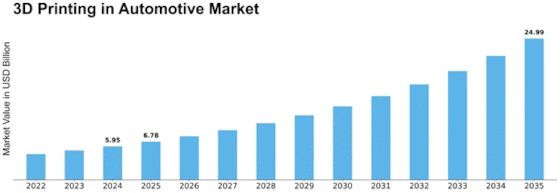


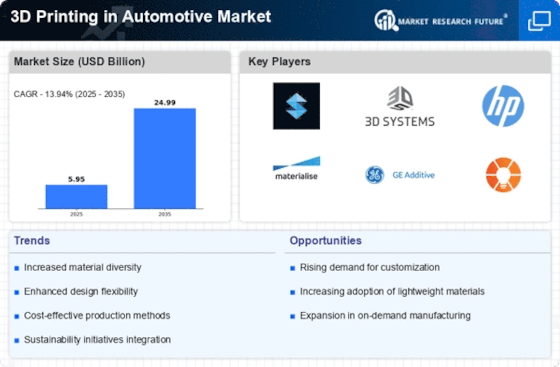
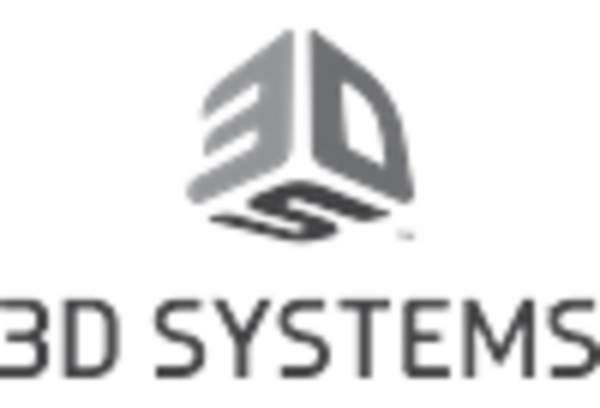
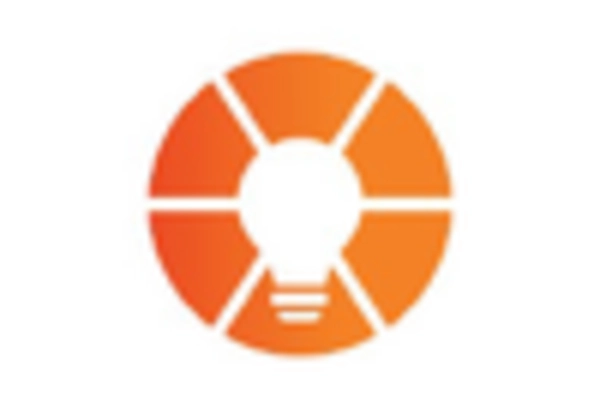
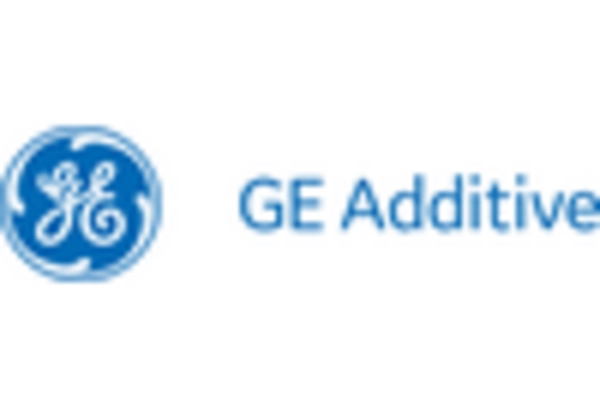
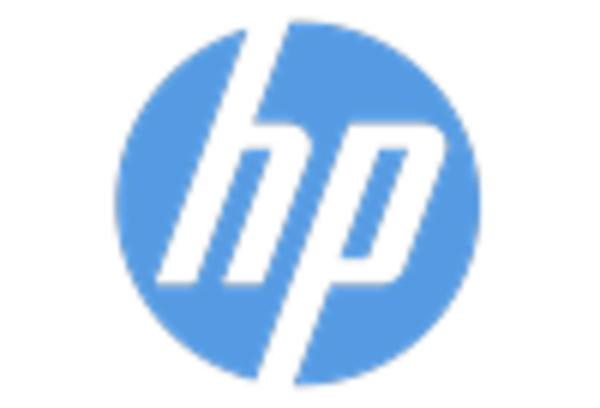
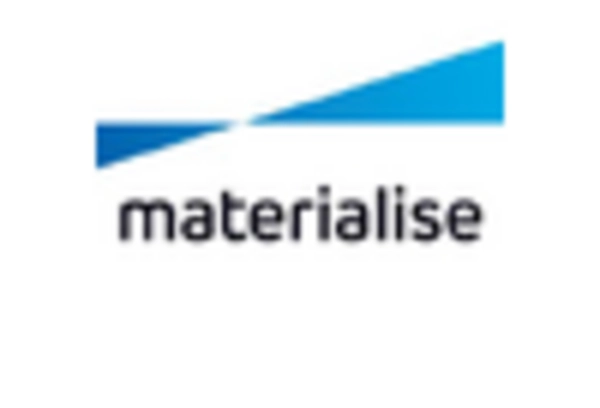
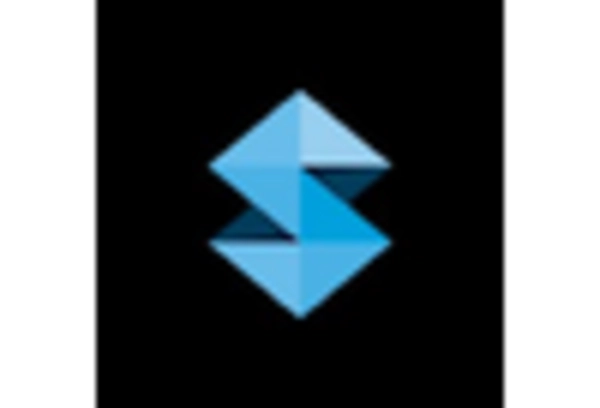









Leave a Comment